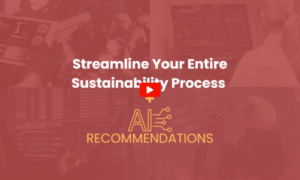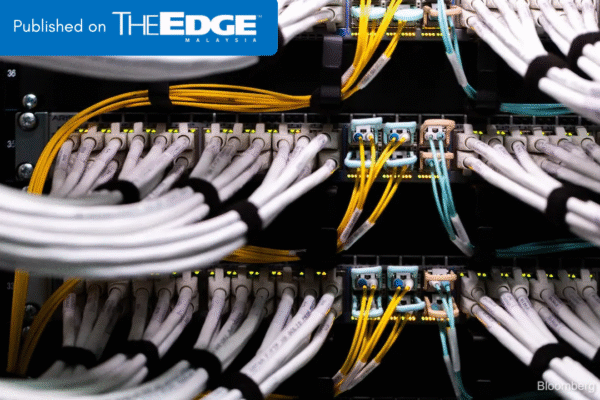Overcoming 4 Challenges in Sustainability Data Collection: The First Step of Sustainability Management and Reporting for Organisations in Asia
In today’s rapidly evolving global landscape, sustainability management are no longer an option but an urgent imperative. Organisations worldwide, especially in Asia, are awakening to the pressing need for sustainable development. However, the journey towards sustainability often hits a roadblock at the very first step – data collection. Countless organisations find themselves struggling to gather and utilise accurate sustainability data, hindering their ability to optimise their sustainability performance and embrace the competitive advantages that sustainable practices offer.
In Asia, where sustainable initiatives are gaining momentum, the importance of effective sustainability data collection cannot be overstated. The urgency to address this issue lies in the critical role data plays in shaping informed decisions, measuring progress, and driving meaningful change. Proper data collection enables organisations to transparently demonstrate their commitment to sustainability, gain stakeholder trust, and seise market opportunities arising from the growing demand for eco-conscious products and services. To unlock a greener, more prosperous future, organisations must take decisive action to overcome data collection challenges and propel their sustainability management and performance to new heights.
Four Challenges in Sustainability Data Collection
-
- Understanding Sustainability Reporting Guidelines – The first challenge organisations encounter is understanding and complying with the various reporting guidelines relevant to their sector and nature. Various reporting guidelines need to be followed depending on the type of organisation, such as Sustnability Reporting Guidelines for Public Listed Companies (PLCs), Global Reporting Initiative (GRI) for government agencies or NGOs, and Taskforce for Climate Related Financial Disclosure (TCFD) for financial institutions. These guidelines can be complex and require meticulous adherence to ensure comprehensive and standardized reporting.
-
- Defining What to Measure and Track – Defining the right metrics and key performance indicators (KPIs) is crucial for effective sustainability data collection. Organisations must identify the areas that matter most in terms of environmental impact, social initiatives, and governance practices. This involves conducting internal sustainability assessments, audits, and engaging with stakeholders to gain a comprehensive understanding of material issues.
-
- Embracing Real-Time Data Collection – Real-time data collection through sensors and Internet of Things (IoT) devices offers unprecedented insights into an organisation’s sustainability performance. However, implementing real-time data collection requires significant investments in technology, Application Programming Interfaces (APIs), and data processing capabilities.
- The “Impossible Triangle” Challenge – The “impossible triangle” of time, money, and data quality poses a significant challenge in sustainability data collection. Organisations must find the delicate balance between the need for timely, cost-effective data collection without compromising data accuracy and reliability.
Guide to Overcoming Sustainability Data Collection Challenges
-
-
-
Familiarise with Reporting Guidelines
To successfully overcome challenges related to reporting guidelines, organisations should invest time and effort in understanding the specific frameworks applicable to their industry and sector. Engaging key personnel from different departments, stakeholders, and industry peers can provide invaluable insights and guidance in interpreting and implementing these guidelines effectively. Additionally, establishing clear communication channels for internal alignment can help ensure consistent reporting that aligns with industry best practices.
-
-
-
Define Clear Metrics and KPIs
Overcoming the challenge of defining what to measure and track requires a systematic approach. Organisations should conduct internal sustainability assessments and audits to identify their most significant environmental, social, and governance impacts. Engaging with stakeholders, including employees, customers, suppliers, and local communities, can offer diverse perspectives on material issues. By prioritising metrics based on materiality and impact, organisations can focus on areas that align with their sustainability goals and contribute most to their long-term success.
-
-
-
Adopt Incremental Real-Time Data Collection
The transition to real-time data collection can be overwhelming. A step-by-step approach is advisable, starting with basic data collection processes and gradually integrating real-time technologies. This approach allows organisations to gain insights from existing data while building the necessary infrastructure for real-time data monitoring. Moreover, engaging the IT and sustainability teams in close collaboration can ensure that selected solutions align with the organisation’s goals and financial capabilities.
-
-
-
Evaluate Technology Investments and Collaborate with Trusted Partners
Balancing the “impossible triangle” of time, money, and data quality necessitates strategic decision-making in technology investments. Organisations should carefully assess available technology options to determine their scalability and compatibility with existing systems. Cloud-based solutions offer flexibility and cost-effectiveness in handling vast amounts of sustainability data. By involving the IT team in the evaluation process, organisations can explore customised solutions that suit their unique requirements, ensuring an efficient data collection process without compromising quality.
Collaborating with industry peers and trusted partners can significantly enhance sustainability data collection efforts. Establishing partnerships allows organisations to exchange data with verified sources, gaining access to a broader range of sustainability information. By leveraging external expertise, organisations can address specialised data collection needs more effectively and stay up-to-date with the latest industry trends and best practices.
-
Establish Data Governance and Quality Control
To ensure data accuracy and reliability, organisations must implement robust data governance policies and procedures. Data governance frameworks provide clear guidelines on data collection, storage, and sharing processes. Regular data quality checks and audits are essential to identify and rectify any inaccuracies or inconsistencies in the collected sustainability data. Engaging employees in data validation and verification processes encourages a culture of data ownership and accountability, enhancing the overall reliability of sustainability data.
-
-
-
Continuously Improve Sustainability Management
Sustainability data collection is not a one-time effort but an ongoing journey towards continuous improvement. Analysing sustainability data regularly provides valuable insights into performance trends and areas for improvement. Organisations should set actionable goals based on data analysis and integrate sustainability information into their decision-making processes. By actively responding to performance insights, organisations can adapt their sustainability strategies to achieve meaningful progress towards their goals.
The Key to Success: Effective Data Collection for Sustainable Performance
To succeed in today’s sustainability landscape, organisations must prioritise efficient data collection to optimise their sustainability performance, minimise compliance risk, and gain a competitive advantage. Overcoming data collection challenges empowers organisations to make informed decisions, boost ESG ratings, and demonstrate their commitment to a greener, more prosperous future. With KewMann’s sustainability management platform, enterprise can streamline sustainability process for over 2 times greater efficiency. Seizing this opportunity now will shape a legacy that not only meets compliance standards but also drives lasting success and positive impact. The path to sustainability begins with effective data collection – the key to unlocking a sustainable future for all.
-
-
For more on how to enable ESG compliance with KewSustain AI-Powered Sustainability Platform, check our blog published on AWS Partner Network Blog.
Watch FREE demo to discover how KewMann empower organisations to optimise sustainability management efficiency and performance













